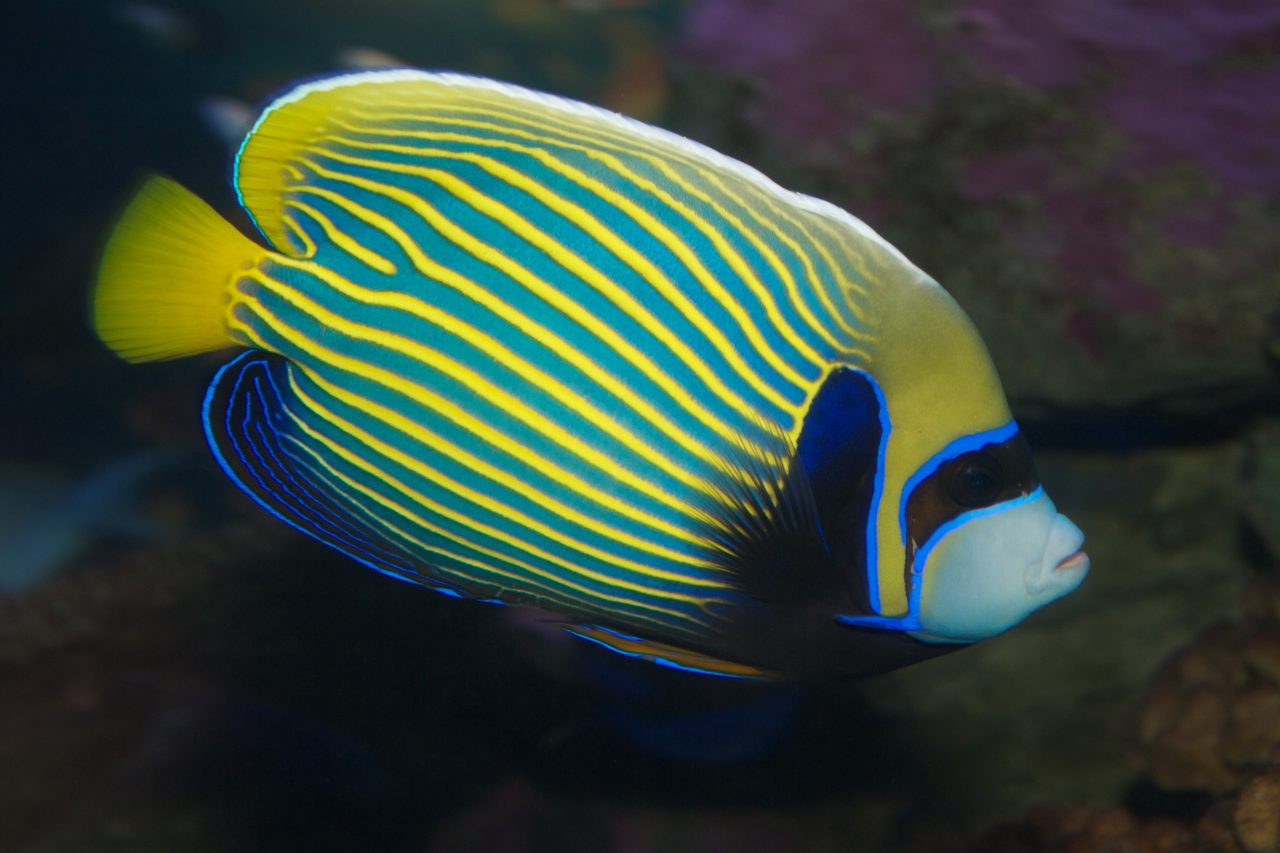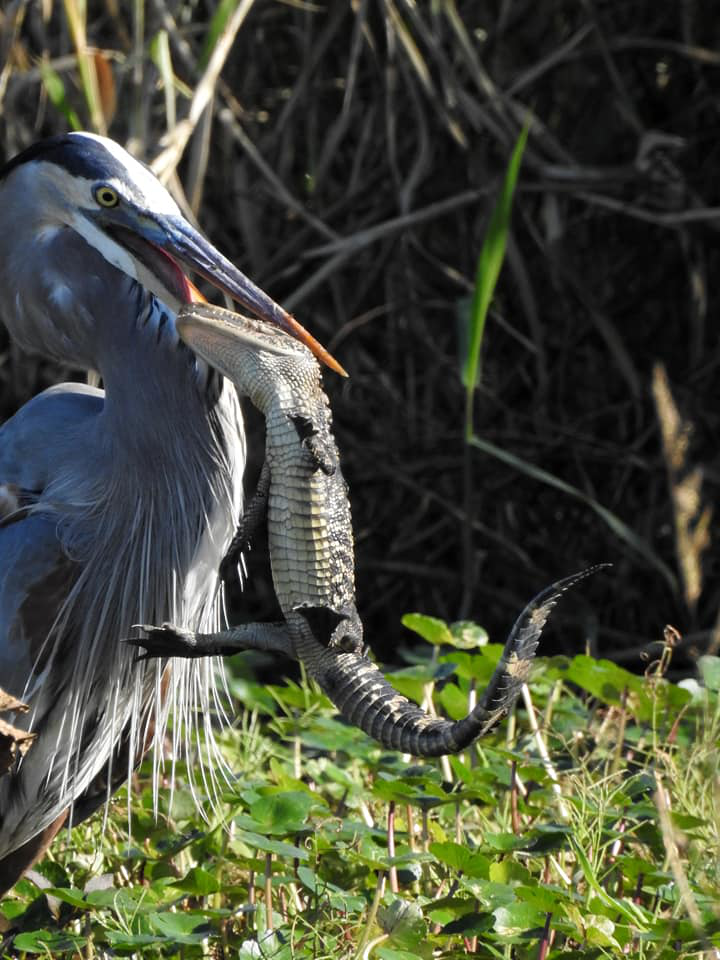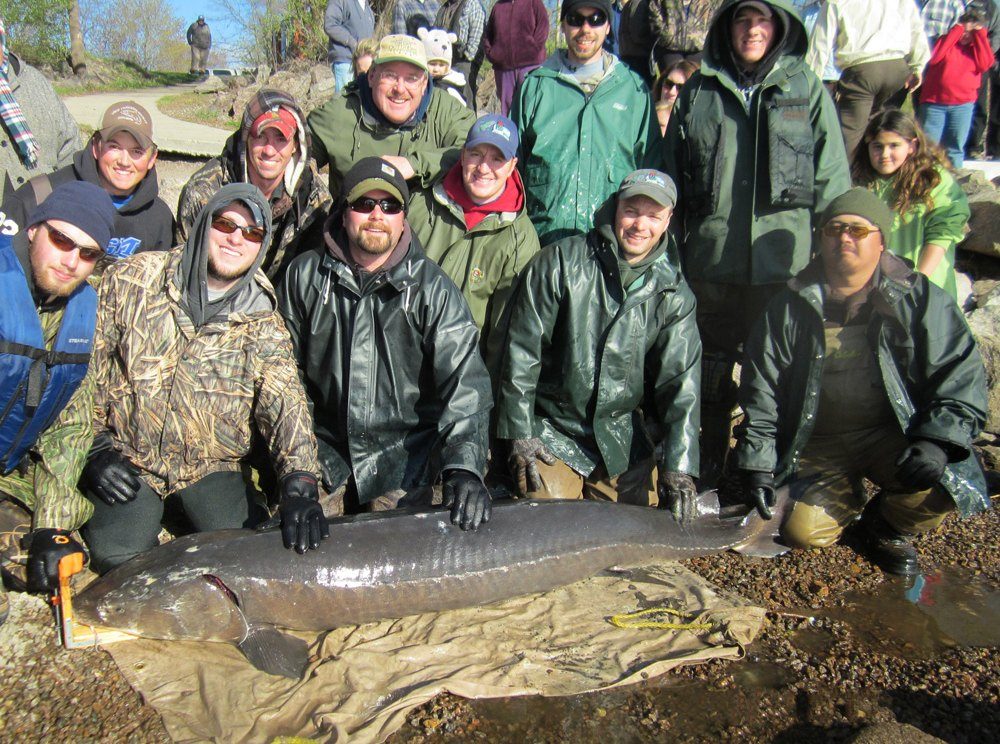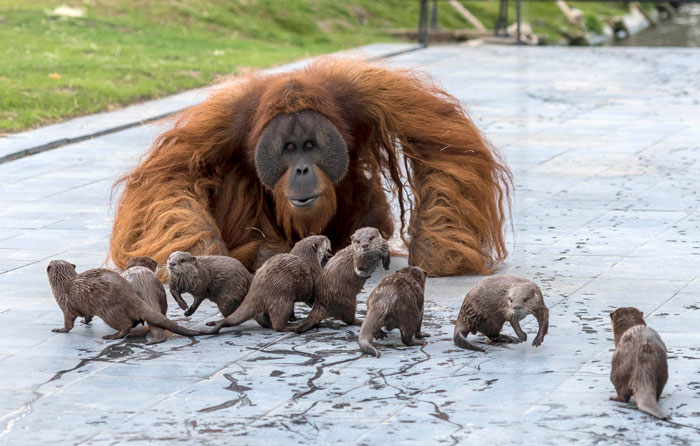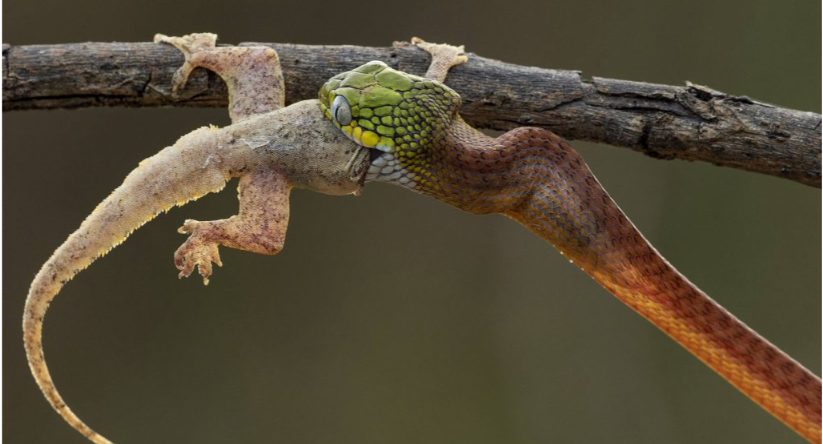A team of researchers has discovered a new species of pumpkin toadlet in Brazil, which has remained hidden from science until now. The tiny toadlet, which is only around 0.75 inches long, was found in the Atlantic rainforest of Brazil and was named Brachycephalus rotenbergae after Brazilian herpetologist Marcio R. Rotenberg.

What sets this newly discovered toadlet apart from others is that it has a secret glow that can only be seen in the dark. The toadlet’s skin contains fluorescent pigments that give off a bright greenish-yellow glow under ultraviolet light. This makes it the first known fluorescent amphibian in the Atlantic rainforest.
Despite its small size, the pumpkin toadlet is known for its loud call, which can be heard up to a quarter of a mile away. This distinctive call is used to attract females during the breeding season. The toadlet’s bright coloration and loud call are believed to serve as a warning to predators that it is toxic.
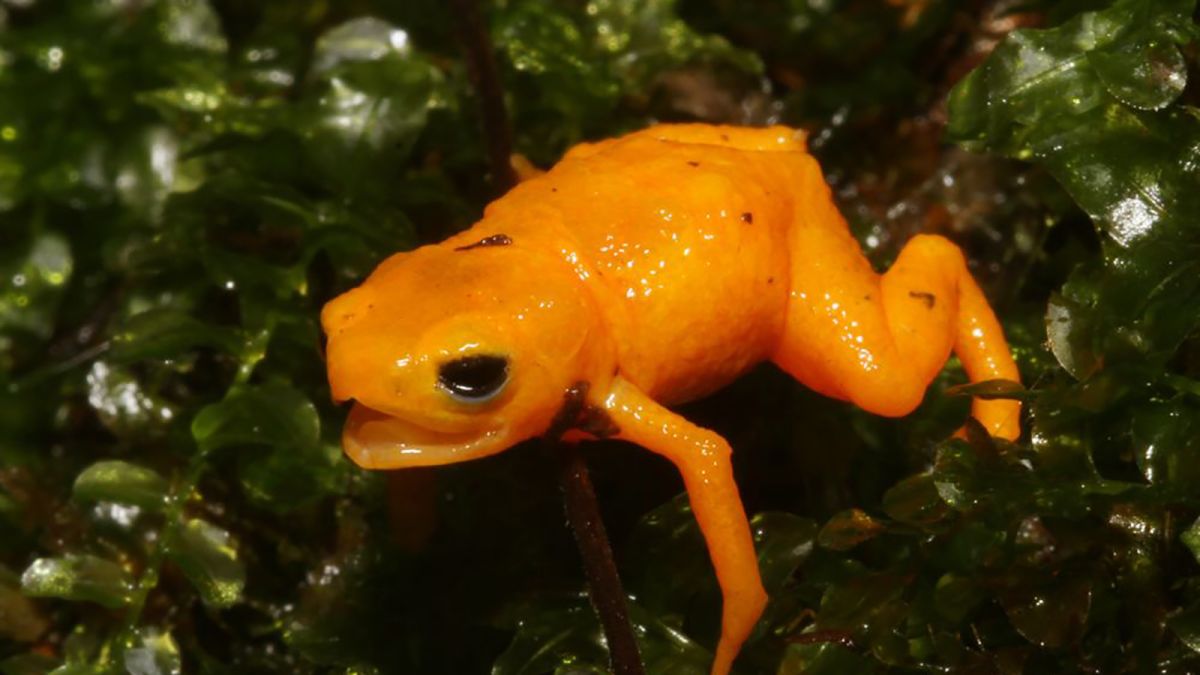
The discovery of this new species is not only exciting for researchers, but it also highlights the importance of protecting the biodiversity of the Atlantic rainforest. This fragile ecosystem is under threat due to deforestation and habitat destruction, which is putting many species at risk of extinction.
Efforts are underway to protect the pumpkin toadlet and other species in the Atlantic rainforest. This includes the establishment of protected areas and the implementation of sustainable land use practices. By protecting these important ecosystems, we can help to ensure that species like the pumpkin toadlet continue to thrive for generations to come.
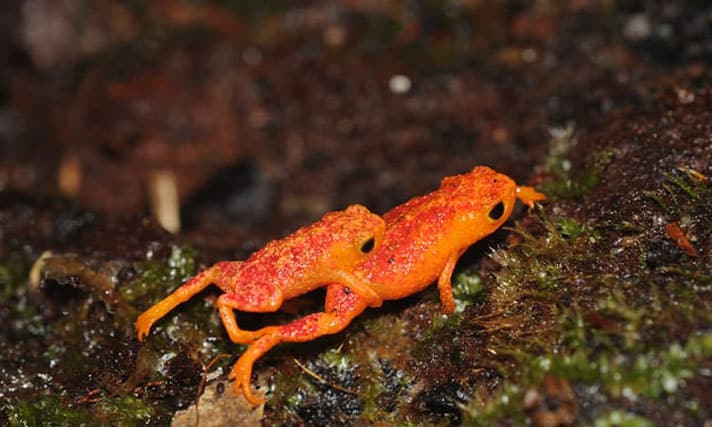
In conclusion, the discovery of the pumpkin toadlet is a fascinating new addition to the world of amphibians, and its secret glow in the dark is an exciting discovery for science. However, it also serves as a reminder of the importance of protecting the fragile ecosystems that these species rely on. By working together to protect these important habitats, we can help to ensure that species like the pumpkin toadlet continue to thrive and contribute to the incredible diversity of life on our planet.




